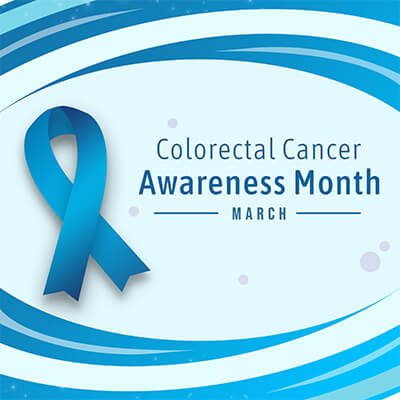March is Colorectal Cancer Awareness Month, a time dedicated to increasing public understanding and knowledge about colorectal cancer - the third most common cancer diagnosed in both men and women in the United States. Despite its prevalence, many individuals lack awareness about how to effectively prevent and treat this disease. This blog aims to demystify colorectal cancer, offering valuable insights into prevention, early detection, and treatment options.
Understanding Colorectal Cancer
Colorectal cancer begins in the colon or rectum, parts of the digestive system. It often starts as a growth on the inner lining of the colon or rectum, known as a polyp. Not all polyps become cancerous, but certain types, like adenomatous polyps, have a higher risk of transforming into cancer.
Risk Factors
Several factors can increase your risk of developing colorectal cancer, including age (over 50), a family history of colorectal cancer, a personal history of polyps, inflammatory intestinal conditions, sedentary lifestyle, obesity, smoking, and heavy alcohol use.
Prevention Strategies
- Screening: Regular screening is the most effective way to reduce your risk. Screenings can detect precancerous polyps, which can be removed before they turn into cancer. The CDC recommends starting screening at age 45.
- Diet and Lifestyle: A diet rich in fruits, vegetables, and whole grains, and low in red and processed meats, can lower your risk. Regular physical activity, maintaining a healthy weight, limiting alcohol consumption, and avoiding tobacco also contribute significantly to prevention.
- Genetic Testing: For those with a family history, genetic counseling and testing for hereditary syndromes like Lynch syndrome can guide personalized prevention strategies.
Early Detection
Recognizing the symptoms early can lead to more effective treatment. Symptoms include changes in bowel habits, rectal bleeding, persistent abdominal discomfort, a feeling that your bowel doesn't empty completely, weakness or fatigue, and unexplained weight loss. However, colorectal cancer can be asymptomatic in the early stages, which emphasizes the importance of regular screenings.
Treatment Options
Treatment for colorectal cancer may include surgery, radiation therapy, chemotherapy, targeted therapy, or a combination of these methods. The treatment plan depends on the cancer's stage, location, and individual health factors.
- Surgery: The primary treatment for localized colorectal cancer, aiming to remove the cancer cells.
- Chemotherapy: Used before or after surgery to kill cancer cells, reduce tumor size, or relieve symptoms.
- Radiation Therapy: Often combined with chemotherapy, it's used to destroy cancer cells or reduce tumors before surgery.
- Targeted Therapy: Targets specific genes, proteins, or the tissue environment that contributes to cancer growth and survival.
Conclusion
Colorectal cancer, while common, is highly preventable and treatable, especially with early detection. During Colorectal Cancer Awareness Month, we are reminded of the power of education, prevention, and early intervention. By adopting healthy lifestyle choices, undergoing regular screenings, and staying informed about the risks and symptoms, we can take significant steps toward reducing the incidence and impact of colorectal cancer.
Embrace this month as a call to action to prioritize your colorectal health. Awareness is the first step toward prevention, and your journey towards a healthier future begins with knowledge and proactive measures. Together, we can combat colorectal cancer and save lives.

